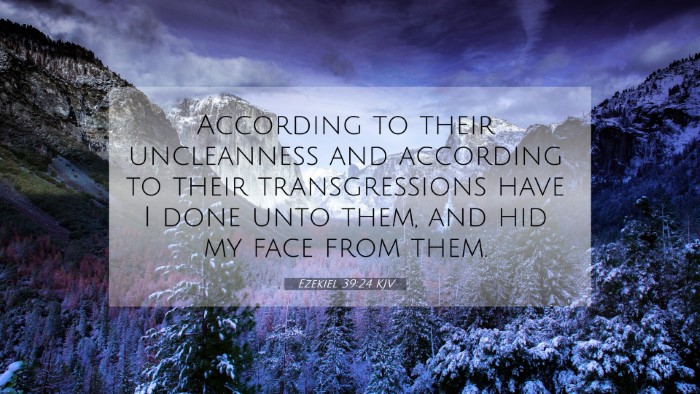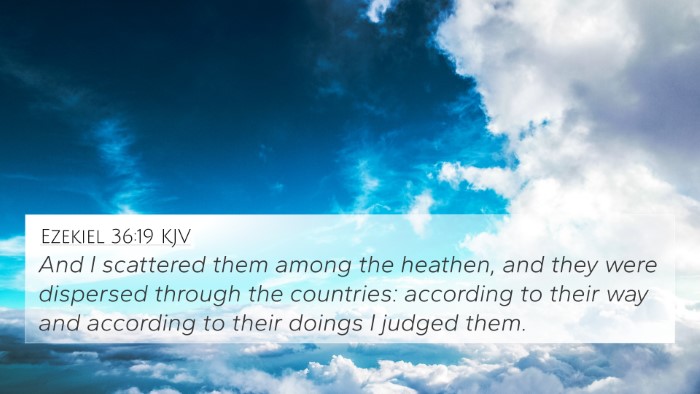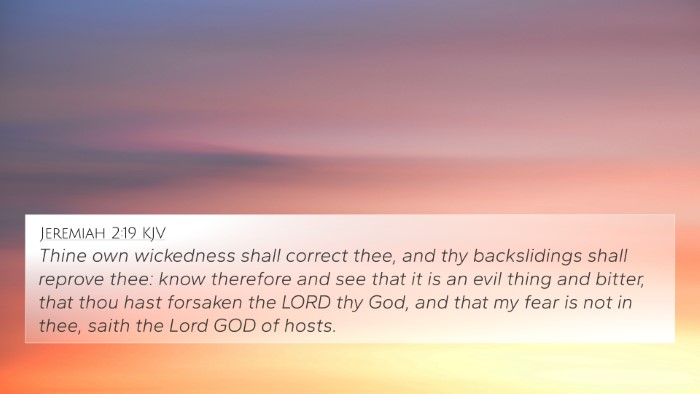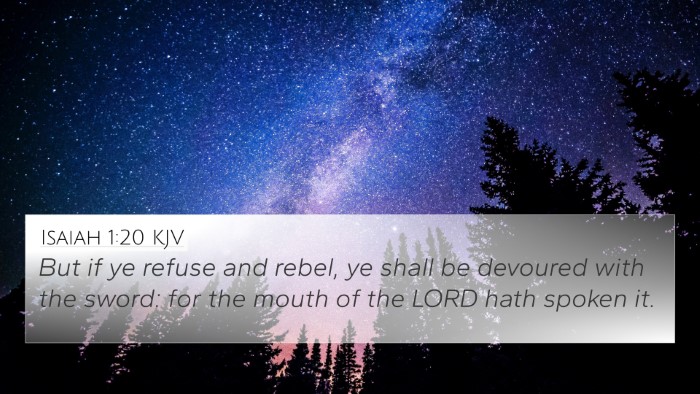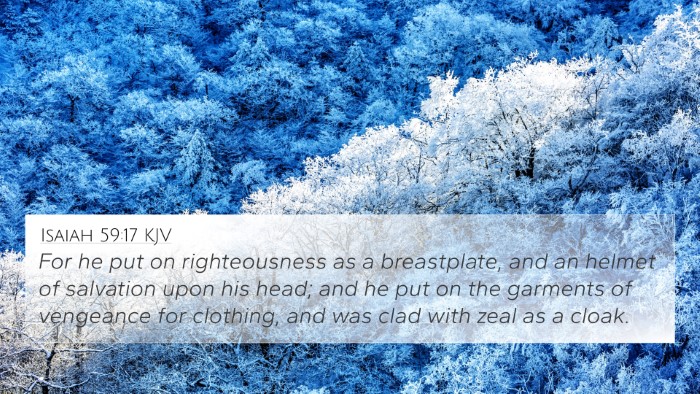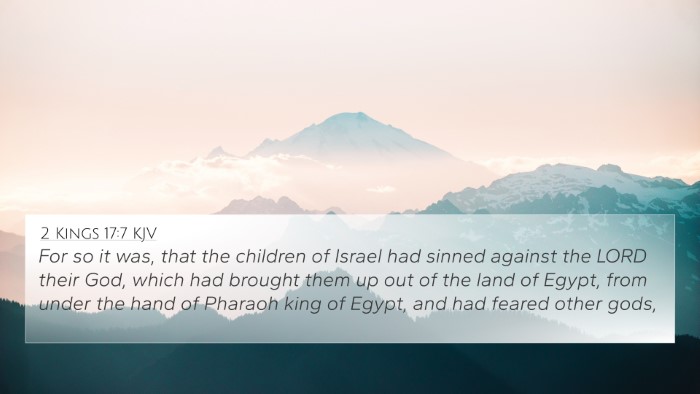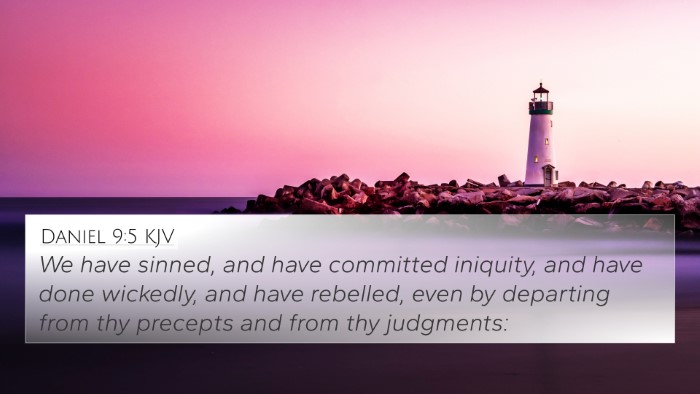Ezekiel 39:24 - Understanding the Verse
Ezekiel 39:24 states: "According to their uncleanness and according to their transgressions have I done unto them, and hid my face from them."
Meaning and Interpretation
This verse encapsulates a significant theme regarding divine judgment and the consequences of Israel's disobedience. Through the insights of various public domain commentaries, we can gain a deeper understanding of its profound meanings.
- Matthew Henry: He emphasizes the idea of sin leading to separation from God. God's act of hiding His face symbolizes withdrawing His favor, reflecting the spiritual condition of the people who have turned away from righteousness.
- Albert Barnes: Barnes comments on the association between Israel's sin and their punishment. He suggests that the phrase “according to their transgressions” communicates the principle of retributive justice; the severity of their punishments matches the gravity of their offenses.
- Adam Clarke: Clarke explores the prophetic implications of this verse. He indicates that God’s hiding of His face relates to the absence of His presence among the people due to their persistent unfaithfulness, resulting in disaster.
Key Themes
The primary themes reflected in Ezekiel 39:24 include:
- Divine Retribution: The verse illustrates the concept of divine justice, reinforcing the idea that God responds to human action with appropriate measures.
- God's Holiness: The purity of God necessitates that He cannot abide sin, thus His face being hid signifies the barrier created by sin.
- Repentance: Implicitly, this verse calls for self-examination and turning back towards God to restore the relationship that had been fractured by sin.
Cross-References
Understanding Ezekiel 39:24 can be augmented through examination of related Scriptures. Here are several Bible verses that provide context and enhance the understanding of the themes presented:
- Isaiah 59:2: "But your iniquities have separated you from your God; and your sins have hid His face from you."
- Psalm 13:1: "How long wilt thou forget me, O Lord? Forever? How long wilt thou hide thy face from me?"
- Jeremiah 5:25: "Your iniquities have turned away these things, and your sins have withholden good things from you."
- Lamentations 3:44: "Thou hast covered thyself with a cloud, that our prayer should not pass through."
- Deuteronomy 31:17: "Then my anger shall be kindled against them in that day, and I will forsake them, and I will hide my face from them..."
- Micah 3:4: "Then shall they cry unto the Lord, but he will not hear them: he will even hide his face from them at that time..."
- Ezekiel 14:8: "And I will set my face against that man, and will make him a sign and a proverb, and I will cut him off from the midst of my people..."
Thematic Connections
The connections between these verses highlight a consistent theme throughout scripture – God’s response to sin and the dire need for His people to seek reconciliation through repentance. These cross-references assist in a comparative Bible verse analysis, revealing how the Old Testament themes of sin and judgment resonate within the broader biblical narrative.
Using Cross-References Effectively
For those looking to deepen their Bible study, cross-referencing can be a valuable tool. Here are some practical ways to do so:
-
Bible Concordance: Utilize concordances to identify and link related verses across texts.
-
Bible Cross-Reference Guide: There are many guides available that list verses that correlate with your study topic.
-
Bible Study Methods: Employ thematic approaches or topical studies by tracing specific themes, such as sin and grace, cross-referencing impacts over multiple passages.
Conclusion
In summary, Ezekiel 39:24 serves as both a warning and an invitation toward repentance. Understanding this verse, alongside its cross-references, enriches one’s grasp of God’s character and His relationship with humanity, particularly in the context of sin and redemption. As we explore the breadth of Scripture, we recognize the intricate links that reveal the cohesive narrative of God’s dealings with His people, encouraging us to seek His face earnestly.


